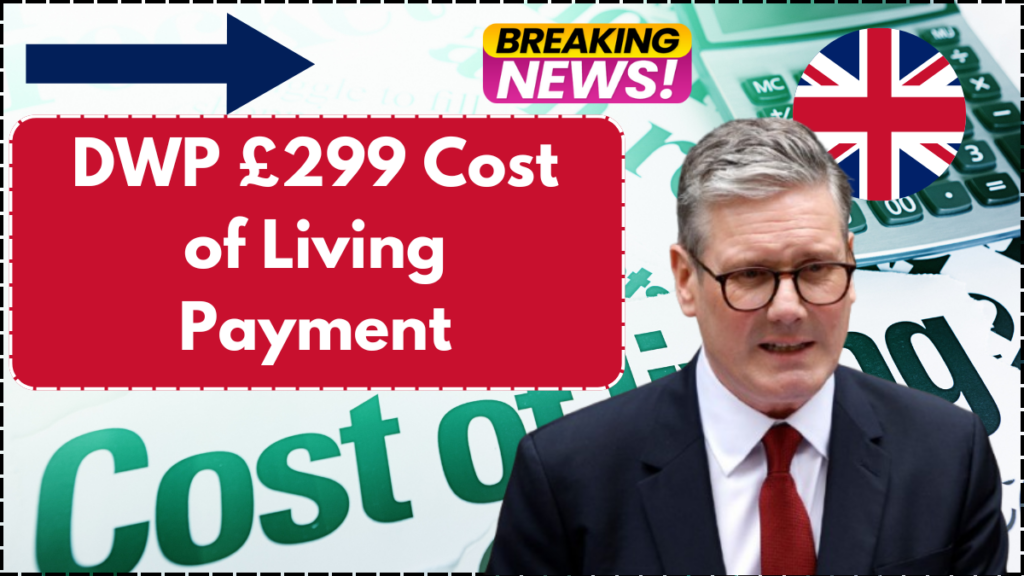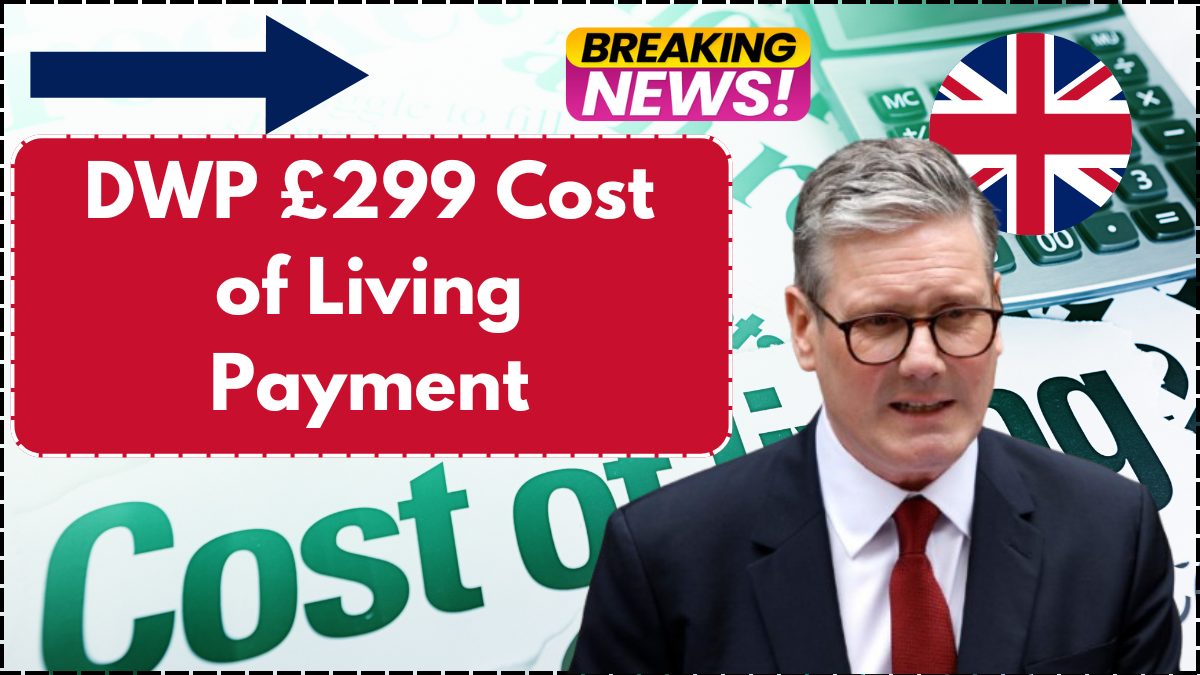With inflation continuing to impact household budgets across the UK, the government has rolled out financial assistance measures to support low-income individuals. The £299 Cost of Living Payment serves as the final installment of a three-part scheme designed to provide relief amid soaring food prices, increasing energy bills, and overall rising living expenses.
This payment, part of a broader £900 support package, was automatically deposited into the bank accounts of eligible individuals between 6 April and 22 April 2024. However, not everyone received the expected amount, raising concerns among recipients. If you’re uncertain about your eligibility or wondering why your payment hasn’t arrived, this guide provides all the necessary information.

Breakdown of the £299 Cost of Living Payment
The £299 Cost of Living Payment was the final tranche of a £900 financial aid package aimed at helping low-income households. The full breakdown of this support is as follows:
| Payment Installment | Amount | Payment Date Range |
|---|---|---|
| First Payment | £301 | Spring 2024 |
| Second Payment | £300 | Autumn 2024 |
| Final Payment | £299 | April 2024 |
The assistance was structured to ease financial strain over the 2023-2024 fiscal year, targeting those most affected by economic hardship.
Who Was Eligible for the £299 Payment?
To qualify for the £299 Cost of Living Payment, individuals needed to be recipients of one or more of the following means-tested benefits during the eligibility period (13 November to 12 December 2023):
- Universal Credit
- Income-based Jobseeker’s Allowance (JSA)
- Income-related Employment and Support Allowance (ESA)
- Income Support
- Pension Credit
- Working Tax Credit
- Child Tax Credit
If you received any of these benefits without a break in your claim during the specified timeframe, the payment should have been deposited into your account automatically.
Who Was Not Eligible?
Certain benefit recipients were excluded from the £299 payment. If your only source of support was one of the following, you did not qualify:
- New Style Employment and Support Allowance (ESA)
- Contribution-based ESA
- New Style Jobseeker’s Allowance (JSA)
These benefits are not means-tested, meaning they do not specifically target individuals with lower incomes. Additionally, if there was a temporary break in your benefit claim during the eligibility period, you may have missed out on the payment.
How Was the £299 Payment Distributed?
The Department for Work and Pensions (DWP) and HM Revenue & Customs (HMRC) were responsible for processing the payments, depending on the type of benefit received:
- If your benefits were managed by DWP, your bank statement should display “DWP COL.”
- If your benefits were managed by HMRC, the transaction would be labeled “HMRC COLS.”
There was no need to apply for this payment, as it was automatically transferred into the bank accounts of eligible recipients using existing benefit payment details.
What to Do If You Didn’t Receive the Payment
If you were expecting the £299 Cost of Living Payment but haven’t seen it in your account, follow these steps:
- Check Your Bank Transactions: Look for a deposit labeled “DWP COL” or “HMRC COLS” between 6 and 22 April 2024.
- Review Your Benefit Status: Ensure you were receiving a qualifying benefit during the eligibility period (13 November to 12 December 2023).
- Report a Missing Payment: If the payment is missing, visit GOV.UK to fill out the dedicated form for reporting non-receipt of funds.
- Contact Your Benefit Provider: Reach out to DWP or HMRC for clarification on your eligibility and payment status.
Late Eligibility and Backdated Claims
If you applied for Pension Credit after the eligibility period but before 5 March 2024, you might still qualify for the £299 payment if your claim was backdated to cover the relevant dates. In such cases:
- Ensure your Pension Credit claim was successfully submitted before the deadline.
- Contact DWP to confirm whether you are now eligible.
- If your claim was approved and backdated, the payment should be issued automatically. If not, you can submit a missing payment request.
Common Reasons for Delayed or Missing Payments
Several factors could have contributed to a delay or non-receipt of the payment, including:
- Incorrect or outdated bank account details registered with DWP or HMRC.
- Processing delays due to high transaction volumes.
- Ongoing or rejected benefit claims that were unresolved during the eligibility period.
- Fraud prevention checks that temporarily held up certain payments.
If you suspect any of these issues, contact your benefit provider as soon as possible.
Beware of Scams Related to Cost of Living Payments
Whenever the government provides financial aid, scammers attempt to exploit vulnerable individuals. Protect yourself by remembering the following:
- DWP and HMRC will never request personal or banking details via text, email, or phone calls.
- Do not click on suspicious links or respond to unsolicited messages claiming to be from government agencies.
- Always verify information through official GOV.UK channels before taking any action.
Frequently Asked Questions (FAQ)
1. Do I need to apply for the £299 Cost of Living Payment?
No, the payment was automatically processed for eligible recipients based on existing benefit records.
2. Can I still receive the payment if I missed the eligibility period?
Only if your Pension Credit claim was submitted before 5 March 2024 and successfully backdated to cover the eligibility period.
3. How can I check if my payment was issued?
Look at your bank statements for a deposit labeled “DWP COL” or “HMRC COLS” between 6 and 22 April 2024.
4. What should I do if I think I should have received the payment but haven’t?
Check your eligibility, review your bank transactions, and report a missing payment via GOV.UK if necessary.
5. How can I avoid scams related to government payments?
Always rely on official government sources, never share personal details with unknown contacts, and report suspicious messages immediately.
Pari is a passionate writer known for captivating stories that blend imagination and reality. Inspired by travel, history, and everyday moments, Pari crafts narratives that resonate deeply with readers.
